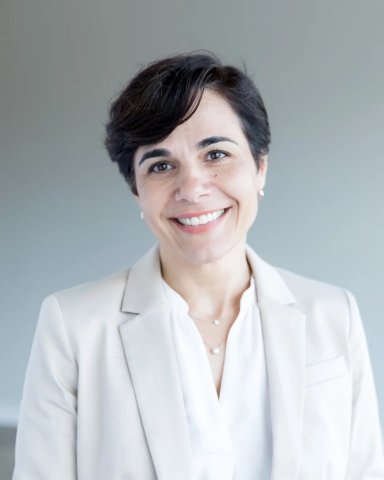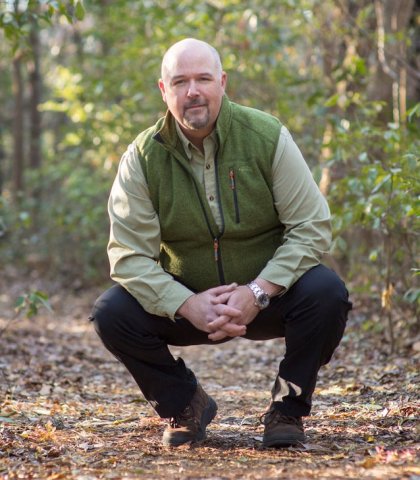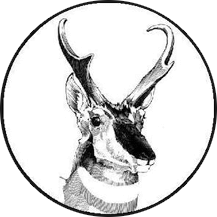Mission & History
Chair
-
Bret Pasch (bretpasch@arizona.edu)
Members
|
|
|
History and Mission
The Joseph Grinnell Award was established by the Board of Directors in 1996 to honor individuals who have made outstanding and sustained contributions to education in mammalogy over a period of at least 10 years. The award recognizes excellence in education in the broadest sense. It encompasses not only the traditional roles of teaching undergraduate and graduate students in academic institutions, but also educational activities such as production of materials for federal, state, or local agencies, public education through creation of museum displays, and enhancement or encouragement of education through stewardship activities. Candidates may be nominated by colleagues, supervisors, students, or others familiar with their devotion to, and execution of, their educational activities.
2025 Joseph Grinnell Award Recipient
The 2025 Grinnell Awardee, Dr. Eileen Lacey, is a professor and Class of 1933 Chair in Biological Sciences at the University of California Berkeley, where she is also a Curator in the Museum of Zoology. For over 35 years, Dr. Lacey’s research has explored the evolution of social behavior in mammals with a focus on rodents. Her work has included field studies of species in North and South America, including long-term studies of tuco-tucos in Argentina. Dr. Lacey has served multiple professional societies. She is a past president of the American Society of Mammalogists, the current president of the International Federation of Mammalogists, and the president-elect of the Animal Behavior Society.
Dr. Lacey’s efforts in teaching and mentoring the next generation(s) of scientists are inspiring! Her dedication to education and mentorship has been recognized repeatedly at UC Berkeley where she has supervised > 25 doctoral students and hundreds of undergraduate student researchers. Dr. Lacey received a Distinguished Teaching Award (her campus’ highest teaching honor) and the Gary and Donna Freedman Chair in Undergraduate Education from UC Berkeley. Dr. Lacey has taught international courses and mentored local students and young scientists through her long-term field research in Patagonia. In addition, Dr. Lacey is a co-PI on one of the first Discovery Initiative Grants offered by UC Berkeley to promote active learning experiences for undergraduates, and she was a co-PI on an NSF RCN-UBE award to promote the use of museum specimens in undergraduate education.
Streaming Presentations
ASM Members can log into the Business Office site and stream presentations from past winners!
To Nominate
Nominations for the Joseph Grinnell Award
The Joseph Grinnell award recognizes excellence in education in the broadest sense. It encompasses not only the traditional roles of teaching undergraduate and graduate students in academic institutions, but also educational activities such as production of materials for federal, state, or local agencies, public education through creation of museum displays, and enhancement or encouragement of education through stewardship activities.
Candidates may be nominated by colleagues, supervisors, students, or others familiar with their devotion to, and execution of, their educational activities. A letter of nomination, maximum length two pages, should detail the candidate's excellence in education in mammalogy and should elaborate the reasons why this individual should be considered for this award. The committee appreciates clear evidence of excellence in teaching or mentorship or the high quality of other educational products. Such evidence could include summaries of teaching evaluations, student comments, student success, or other assessments of the effectiveness of educational activities.
The letter of nomination, the candidate’s curriculum vita, and up to 4 additional letters of support should be sent to Janet Rachlow (jrachlow@uidaho.edu) by 15 March as a single PDF document. The recipient will be announced at the banquet of the annual meeting of the Society. Nominations are not retained from previous years.
Nominations should include a statement regarding adherence to the ASM Code of Professional Conduct. For example:
As a part of preparing this nomination, I have read and understood the American Society of Mammalogists' Code of Professional Conduct (here). To the best of my knowledge, the individual I am nominating exemplifies the high caliber of professional conduct that the ASM expects and promotes as required to be eligible for this award, as well as to retain this recognition should they be the award recipient.
Annual Reports
Recipients
JOSEPH GRINNELL AWARD for excellence in education in mammalogy
Recent Awardees
|
Image
 |
The recipient of the 2024 Joseph Grinnell award is Dr. Matina Kalcounis-Rueppel. Matina Kalcounis-Rueppell is an internationally recognized scientist whose research centers on the biology of acoustic communication in wild bats and mice, two biodiverse groups of mammals that communicate using ultrasound. Using innovative and integrative approaches in the field, she characterizes their communication behaviors and determines how ecological, physiological, and anthropogenic effects mediate those behaviors under natural contexts. She has led two scientific societies, the Southeastern Bat Diversity Network, and the North American Society for Bat research. She has been funded by the Natural Sciences and Engineering Research Council of Canada (NSERC), the US National Science Foundation (NSF) and the US National Institutes of Health (NIH) as well as other government agencies, non-governmental organizations, and industry. Through her outreach program “Bats and Mice in Your Backyard”, she communicates her science, which has also been featured in the popular press, radio and television, and children’s literature, to the public. |
|
Image
 |
The 2023 Grinnell Awardee, Dr. Brian Arbogast, has been doing so for over 20 years. Dr. Arbogast is a Professor of Biology and Curator of Mammals in the Department of Biology and Marine Biology at the University of North Carolina Wilmington. Dr. Arbogast’s nomination was supported by letters from former students who credit him for inspiring them to pursue careers in mammalogy and science. Traits like generosity, enthusiasm, compassion, collaboration, and career-long support for women and minorities in science are attributed to Dr. Arbogast by his students and colleagues. In the past few years, Dr. Arbogast has received numerous awards, including two prestigious teaching awards – one that is the highest teaching honor at his home university (2019 UNC Wilmington Distinguished Teaching Professorship Award) and one that is the highest honor in the University of North Carolina System (2022 UNC Board of Governors Excellence in Teaching Award). Dr. Arbogast also has been instrumental in establishing a research station in Ecuador, WildSumaco Biological Station, which creates opportunities to collaboratively advance conservation and education in the science of mammalogy and tropical ecology for local scientists and students, as well as those from the US. The station will undoubtedly continue to inspire generations of mammalogists. |
Past Recipients
- 2020—Tad Theimer, Northern Arizona University
- 2021—Deedra McClearn, Organization for Tropical Studies
- 2022—Robert Swihart, Purdue University
- 2023—Brian Arbogast, University of North Carolina Wilmington
- 2024—Matina Kalcounis-Rueppell, University of Alberta
- 2024—Eileen Lacey, University of California, Berkeley
- 2010—Enrique P. Lessa, Facultad de Ciencias, Universidad de la Republica Montevideo, Uruguay
- 2011—George A. Feldhamer, Southern Illinois University
- 2012—James H. Brown, University of New Mexico, Albuquerque
- 2013—Ricardo Ojeda, CONICET (the Argentine national research agency), Instituto Argentino de Investigaciones de las Zonas Aridas, Centro Científico Tecnológico
- 2014—Troy Best, Auburn University
- 2015—Robert C. Dowler, Angelo State University
- 2016—Joseph A. Cook, University of New Mexico
- 2017—Robert M. Timm, University of Kansas
- 2018—M. Denise Dearing, University of Utah
- 2019—Donald Kaufman, Kansas State University
- 2000—Robert J. Baker, Texas Tech University
- 2001—Timothy E. Lawlor, Humboldt State University
- 2002—John B. Bowles, Central College, Pella, Iowa
- 2003—David J. Schmidly, Oklahoma State University, Texas Tech University, and Texas A&M University
- 2004—Norman A. Slade, University of Kansas
- 2005—Mark S. Hafner, Museum of Natural Science, Louisiana State University
- 2006—Jerry R. Choate, Fort Hays State University
- 2007—Peter D. Weigl, Wake Forest University
- 2008—R. Mark Brigham, University of Regina
- 2009—David M. Armstrong, University of Colorado
- 1997—B. Elizabeth Horner, Smith College
- 1998—James L. Patton, Museum of Vertebrate Zoology, University of California, Berkeley
- 1999—Philip Myers, Museum of Zoology, University of Michigan
